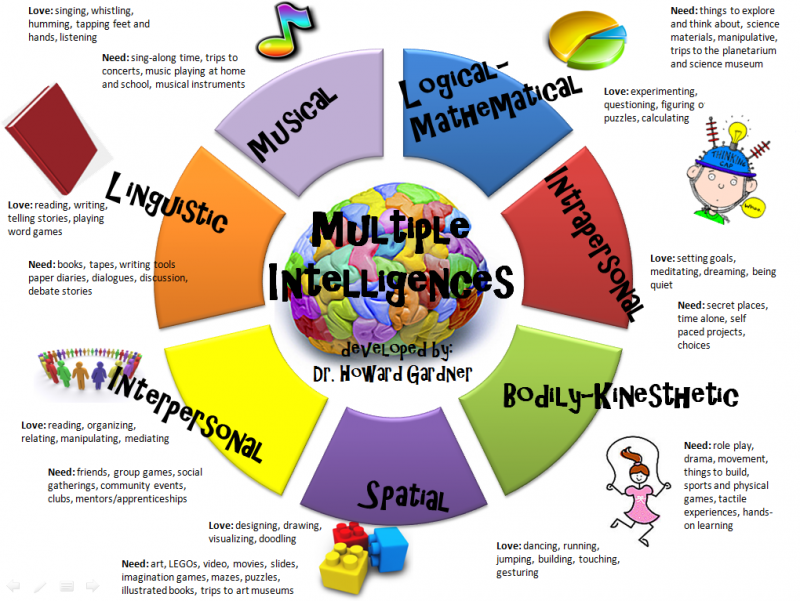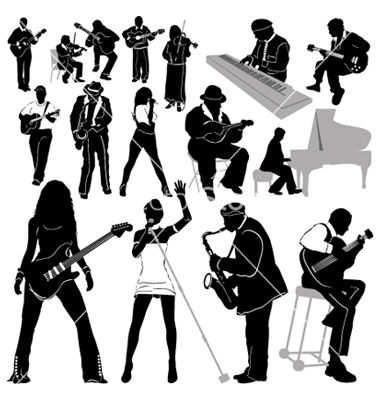9 Types of Intelligence
- BeaCrystalClear 11
- Dec 15, 2016
- 4 min read

In 1983 developmental psychologist Howard Gardene hypothesised that there is more to intelligence than just mental IQ. And came up with the key archetypes of intelligence a person can have, based on the skills and talents a person can acquire over their lifetime. We can learn a lot about ourselves by identify the sorts of intelligence we may have, and it can encourage us to bring out the best aspects of our intelligence. And there are similarities which you can make between each type.
1. Naturalist Intelligence
A person with this form of intelligence have an understanding of the natural world around them. Understand plants and animals, how best to care for them and they also understand the characteristics of each species. People in careers in natural biology, chefs and farming careers. These skills on understanding the natural environment were essential to the evolutionary development, and these skills can be applied in medicine, cosmetic properties, veterinary skills and doctors also rely on this skill.

2.Musical Intelligence
Much like the title, this form of intelligence is the understanding of rhyme, tones, pitches, timbre. These types of people are able to recognise, deconstruct and mimic the music around them and create music equally. This ability involves the ability to recognise sequences and a great hearing ability for subtle changes in sound. People with these people may be talented artists, dancers, and musicians alike. These skills are also applicable to memory, people with incredible good memory may have musical intelligence because using rhyme they are able to memorise things.
3. Logical-Mathematical Intelligence
The ability to calculate, quantify and consider scientific hypothesis. This is more the traditional idea of intelligence. There are numerous ideal career paths for people with this skill, from accountancy,business, science, mathematics and even machines. The ability be able to calculate and understand numbers is a skill that we develop later in our lives.
4. Existential intelligence
The ability to tackle the big questions in life. The philosophical ideas of human existence and the meanings behind things and reality. People with this skill are always searching from a higher meaning to reality. This skill is important to philosophers and theorists, and this skill is applicable to religious and spiritual people.
5. Interpersonal Intelligence
This is the ability to effectively understand others Their thoughts, behavior intentions. And the ability to verbally and non – verbally communicate with offers and understand their behavior. This skill is important to leaders, being able to negotiate and work with complicated personalities and balance. These people can just read the moods and the views offers have. This skill goes for a variety of careers linked in politics, social work, psychology, acting, business and teaching. Since it involves the ability to understand people and how to effectively help and improve their lives.
6. Bodily-Kinesthetic intelligence
The ability to manipulate objects using your body and its capacity to perform physical task and skills. People who are able to easily connect the mind and brain to time, perform and perfect an ability. People who are great a sports, worked in the military, dancers, Athletes, will have the skill to effectively perform this skill. This may also relate to surgeon’s and craftspeople (carpenters, designers) will also need to rely on this skill.
7. Linguistic Intelligence
The ability to verbally explain and vocalise themselves, using language to express a complex idea, a thought, opinions and stories. People with this ability are incredible skilled in language, and often can speak different languages. People with this skill may be writers, novelists, public speakers and poets. Since they have the ability to understand the meanings behind words and how to communicate it effectively.

8. Intra-personal Intelligence
To understand one’s self, one’s habits, ones thought and behavior. To truly understand the yengs and yang’s of one’s personality and deciding to develop and improve upon themselves. These sorts of people have a great personal relationship and have further understanding on what it means to be human. And not just apply their interpersonal knowledge to themselves, yet also apply it to offers. Spiritual leaders, psychologists, philosophers and personal coaches understand this key skill.
9. Spatial Intelligence
Artistic, graphic and imagery skill. These sorts of people are great at understanding shape, form, colour and structure and are able to apply it to apply it to real life. Skills such as understanding distance, astrologically, sailors, pilots all fall under this ability, since they are able to use mind’s eye to see beyond 2 dimensionally. They can create a vision and are able to recreate that.
To conclude, we all fall into our own personal categories and these are interchangeable, we may have the ability to belong in all of these forms of intelligence, and are in certain categories of intelligence. The thing which is so create about measuring intelligence this way is that, it is flexible and we can relate it to different areas in life and are not overly specific and we can come to our own conclusions on the forms of intelligence we have.






Comments